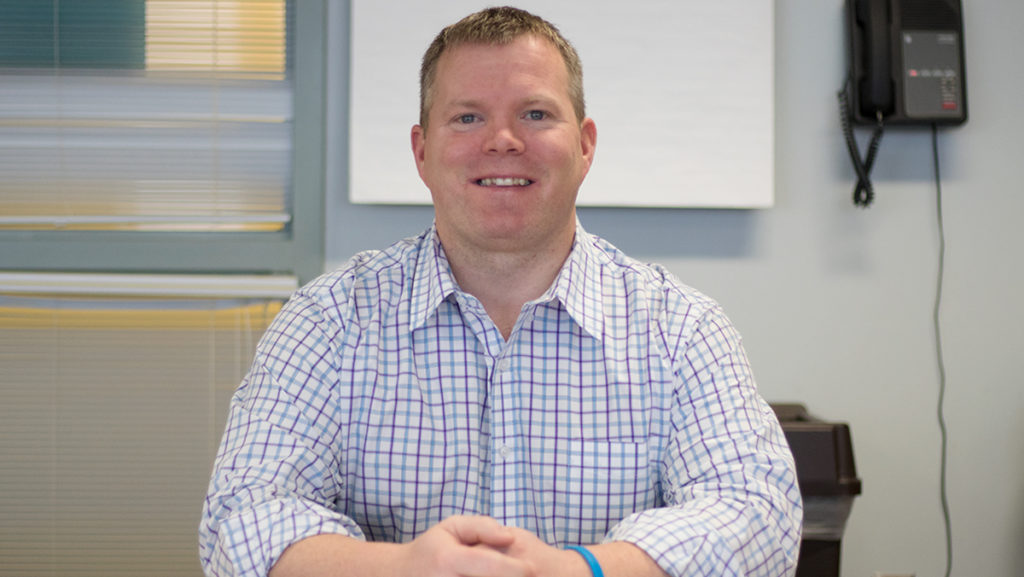The Office of Public Safety and Emergency Management at Ithaca College has suffered from staff shortages of patrol officers over recent months — something that can increase response times and work hours for current patrol officers.
While the hard data on retention rates are currently unavailable, Bill Kerry, director of Public Safety, estimates that the empty posts constitute roughly 30 to 35 percent of his patrol staff.
Low retention has historically been a problem in the patrol and security operations department of Public Safety, Kerry said. Currently, there are three openings for positions and three officers in training, amounting to a total of six patrol officer positions that do not currently have officers on active patrol.
Kerry said the historical precedence for this largely stems from the competitive nature of the industry and the nature of the job itself. The Office of Human Resources did not respond to requests for comment on the number of staff positions in Public Safety.
Andrew Kosinuk, crime prevention and community events liaison for Public Safety, said this is not uncommon at the college. Prior to joining Public Safety, he was a member of the Class of 2006 and a residence director.
“I think, as long as I’ve been at the college in all those different capacities, I have heard the conversation about Public Safety being understaffed or having numerous patrol officer vacancies and all of the challenges that creates,” he said.
Other universities and colleges similar to Ithaca College in size also have retention issues with officers in their public safety departments.
Scott Law, director of Public Safety for Drake University, described his department as a stepping stone to municipal jobs.
“Many of our officers will serve anywhere from three to five years while they are seeking to find positions with municipal police departments,” he said. “Our feeling is we want to have three to five years with really skilled guys that want to be here and serve the community. So it’s something that we deal with.”
Law estimates that a little over half of his officers have served the college for a long time, while the rest transition in and out.
Brian Joschko, chief of police at Bradley University, said the issue of retention remains a concern and a priority for him, but he said that it is not necessarily a bad thing.
“I try to look at the bright side of it,” Joschko said. “Getting some new blood in the department is usually a good thing. Not every employee is someone you want to retain. So some turnover is not necessarily a bad thing.”
Similar to officers at Ithaca College and Drake University, officers at Bradley sometimes move on to local municipalities, which generally offer higher salaries. Fortunately, he said that they are usually quick to fill vacancies.
Kerry said that it is difficult to fill staff shortages because it is hard to find potential officers. He also said the nature of the job can make it difficult to do so.
“It’s tough to find people that want to work nights, weekends and holidays,” Kerry said. “The expectations of law enforcement are increasing every year.”
Kerry said the tasks patrol officers are assigned vary day to day. In many cases, this means that they will leave work and head home to their families an hour or two later than expected.
Monisa Adams, executive director of the Student Auxiliary Safety Patrol, said staffing shortages at Public Safety can result in longer response times.
“It makes it hard because a lot of times, there’s not enough officers to cover all of the shifts,” she said. “So the ones that are working have to work a lot of overtime. People don’t realize how much work they have to do and how much time they have to spend doing it. And most people don’t know that we are really understaffed.”
Since graduating from the college in 1988, Lt. Tom Dunn has worked at Public Safety as a dispatcher, security officer, patrol officer and sergeant. While he said he enjoyed working as a patrol officer, he said that it was not for everyone.
“It’s not the easiest job,” Dunn said. “We ask a lot from our patrol officers. We ask them to investigate violations of student conduct code, we ask them to go on medical calls and fire-related calls and calls for service. … We have a wide variety of responses the men and women have to respond to.”
Jacob Tubbs, a patrol officer who has been serving since December, said the job of being a police officer can become particularly difficult when the community is not supportive of them.
“Just by nature, people don’t like a lot of police officers,” he said. “Whether they’ve had issues with them in the past or they know people that have had issues with them, it can be tough. You are already out on a bad foot for no reason [when it was] nothing you did. That makes it tough sometimes.”
The combination of the job’s being strenuous and the compensation’s being more competitive at other police agencies makes retention of officers difficult, Kerry said.
Many municipal agencies — town and city police departments — offer their officers a 20-year retirement plan. They also have larger operations, which means that it is often easier to get promotions.
In the meantime, Kerry said he hopes to help increase retention at Public Safety by creating a positive environment for the officers. He said building a community for the officers to feel included in will help the situation.
“Police are generally seen as a person in a uniform wearing a gun and a badge,” he said. “What we’re trying to do is get people to see beyond that and humanize [them].”








